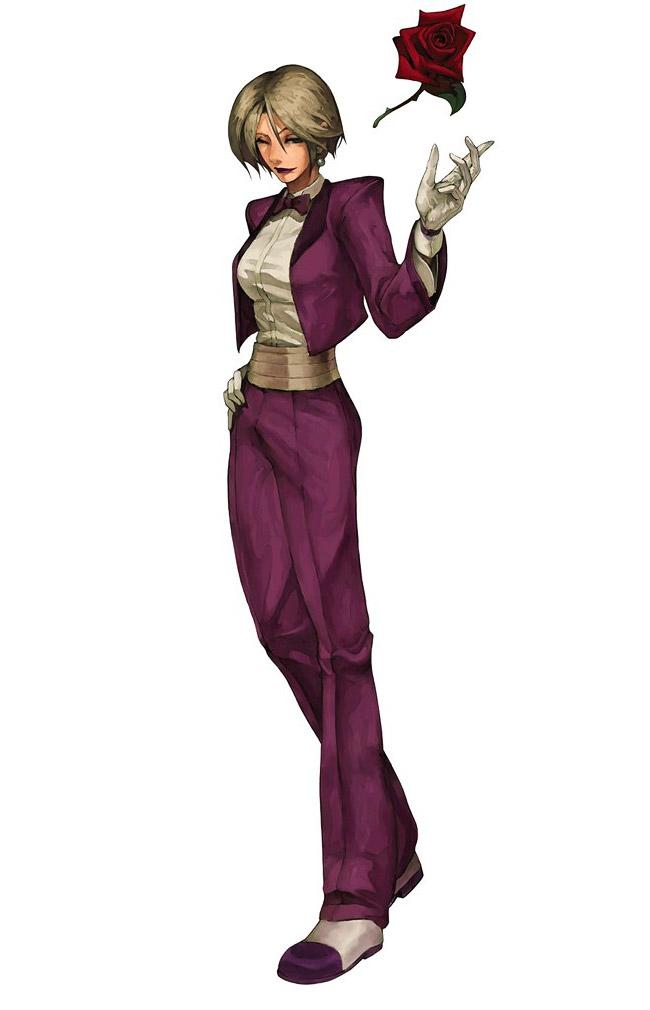So here’s a hot take.
The King of Fighters has always carved out a queer-friendly space. It has an enormous cast, defined more than anything by personality dynamics—representing a huge array of gender expressions and unconventional relationships. The team dynamics in this series are akin to found families. With a few exceptions, no one in KoF is ever fighting alone. Personal support systems are the norm.
Of the fourteen main games in the series, The King of Fighters 2001 is easily the queerest—with ’99 as closest runner-up. (That whole K’/Krizalid storyline sure is something!) Those bookends to the NESTS saga (the second story arc in the series, with KoF 2000 in the center) are the most I-don’t-give-a-fuck, expressive chapters in the series, unconcerned with expectations, with fitting into forms. Instead they spend their time grasping and scraping the margins to say what they feel they have to say, even if it comes off as broken or ugly or annoying.
The preceding Orochi saga had been, to a large extent, about living up to roles and expectations foretold centuries before one was even born. There are queer dynamics within that, but what’s astounding about the NESTS arc is how it dumps the rest and redoubles its attention on those elements.
There is something so essentially queer about the NESTS saga, coming up as it does to shred everything that came before, oust the main character, and refocus the series on this new sci-fi story about finding identity that’s been systemically stolen.
The team dynamics, which define KoF as a sereies, becomes all the stronger in this period, with larger teams allowing a more complete and varied support system and more potentials for character interaction. Part of the story progress is watching the likes of K’ slowly assemble his crew—which takes almost-full form with 2001.
All of the principle cast, during the NESTS years—it’s about discovering who they really are apart from how everyone else views them and all the burdens they carry. Even Kyo and Iori getting dumped from the burden of series leads for a while to focus on each other fits this.
2001 is the least fuckful of the trilogy, both in its astounding-it-even-got-made design and its story and aesthetics. It is what it is. The characters are embracing who they are, the good and the bad. The art isn’t trying for gloss: it’s as straight-up expressive as it’s been. I am on record for feeling the most affinity with this game, out of all of them. I think I’m developing a better handle on why.

Also, on the EDM/queerness axis, the NESTS era has the best music in the series. Which is saying something, considering the series is known for its music almost as much as Castlevania or Mega Man or Sonic. Into which I stubbornly rope the 2001 AST, yes:
Though given their polish, ’99 and 2000 are a bit of an easier argument:
I mean. If you’re gonna have a queer-coded sci-fi revamp, might as well go full EDM, right?
And Christ, if we’re talking about associated emotional issues, the level of angst the series rises to in this arc: